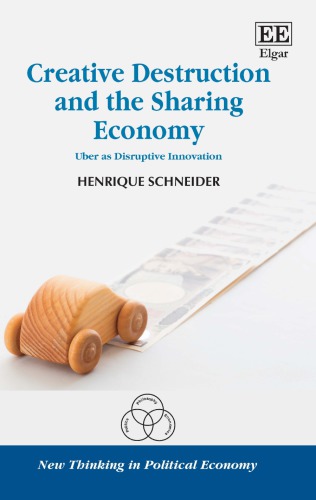

Most ebook files are in PDF format, so you can easily read them using various software such as Foxit Reader or directly on the Google Chrome browser.
Some ebook files are released by publishers in other formats such as .awz, .mobi, .epub, .fb2, etc. You may need to install specific software to read these formats on mobile/PC, such as Calibre.
Please read the tutorial at this link: https://ebookbell.com/faq
We offer FREE conversion to the popular formats you request; however, this may take some time. Therefore, right after payment, please email us, and we will try to provide the service as quickly as possible.
For some exceptional file formats or broken links (if any), please refrain from opening any disputes. Instead, email us first, and we will try to assist within a maximum of 6 hours.
EbookBell Team

4.7
26 reviewsInstead of discussing this in a purely abstract manner, this book uses Uber as a case study. Uber plays an active role between these two forces: first as an agent of creative destruction and then possibly as a champion of regulation on its own terms. Henrique Schneider analyses Uber as an economic phenomenon, investigates the fundamental problems with competition regulation, and explores the intermediation of idle capacity through technology. Ultimately, Schneider concludes that the more Uber is regulated, the less innovative it becomes.
This groundbreaking book will appeal to a broad and varied readership including economists, educators, students and law professionals.